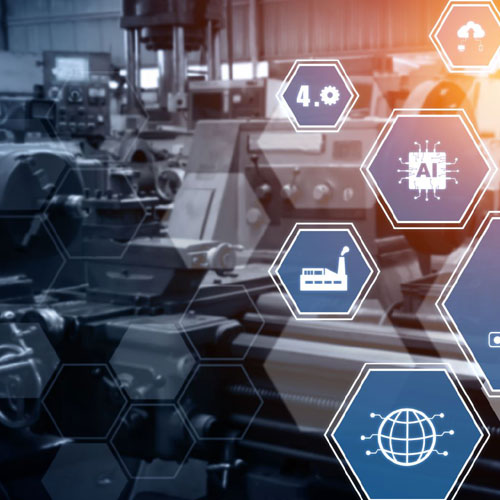- +91 8586 82 4525
- info@incoreguru.com
Industries Served / Manufacturing & Industrial

Providing legal services to manufacturers and industrial companies, focusing on areas such as product liability, regulatory compliance, intellectual property protection, environmental laws, supply chain contracts, labor issues, and international trade regulations.
The Manufacturing and Industrial sectors are crucial drivers of the global economy, encompassing the production of goods, machinery, and infrastructure that support other industries and the overall economic ecosystem. These sectors involve the transformation of raw materials into finished products and the operation of various industries that supply tools, machinery, and equipment to businesses. Here’s a breakdown of the Manufacturing and Industrial sectors:
The manufacturing industry focuses on the large-scale production of goods using labor, machines, and tools. It converts raw materials or components into finished products that can be sold directly to consumers or used as inputs for other industries. Manufacturing is typically divided into different categories based on the type of product being produced:
The industrial sector encompasses a broader range of activities that involve the production of goods, infrastructure, and services essential for the economy. These industries support manufacturing and play a crucial role in the development of industrial and commercial products. Key sectors within the industrial industry include:
Manufacturing involves various processes, depending on the product and the industry. The major manufacturing processes include:
The manufacturing and industrial sectors are undergoing rapid transformations driven by technology, globalization, and sustainability initiatives. Key trends include:
Industry 4.0: Refers to the integration of automation, data exchange, and advanced technologies like the Internet of Things (IoT), artificial intelligence (AI), and robotics in manufacturing. This leads to smarter factories, where machines and systems are interconnected, enhancing productivity and efficiency.
Automation and Robotics: Many manufacturing plants are incorporating robotic systems to streamline production, improve precision, reduce human error, and lower labor costs.
3D Printing (Additive Manufacturing): This technology is transforming manufacturing by enabling rapid prototyping, on-demand production, and reducing waste in sectors like automotive, healthcare, and aerospace.
Sustainable Manufacturing: There’s increasing pressure on manufacturers to adopt greener practices, such as using renewable energy, reducing waste, and incorporating circular economy principles (e.g., recycling and reuse of materials). This includes more energy-efficient production methods and reducing emissions.
Global Supply Chains: The interconnectedness of global trade means that companies source materials from all over the world. However, disruptions, such as the COVID-19 pandemic and geopolitical tensions, have highlighted the need for more resilient and flexible supply chains.
Digital Twins: The concept of creating a digital replica of physical assets (factories, machines) to simulate and optimize performance. It allows manufacturers to predict issues, reduce downtime, and increase operational efficiency.
Reshoring: A trend where companies are moving production back to their home countries due to concerns about overseas supply chains, geopolitical risks, and the desire for greater control over production quality.


At Incore Guru, our aim is to help businesses in managing and create intellectual property (IP) and provide comprehensive IP solutions for every aspect of conducting business in the knowledge economy.
C165 Sarvodaya Enclave New Delhi 110017 INDIA
101 Tilak Path CMR Point #101 INDORE 452007 INDIA
